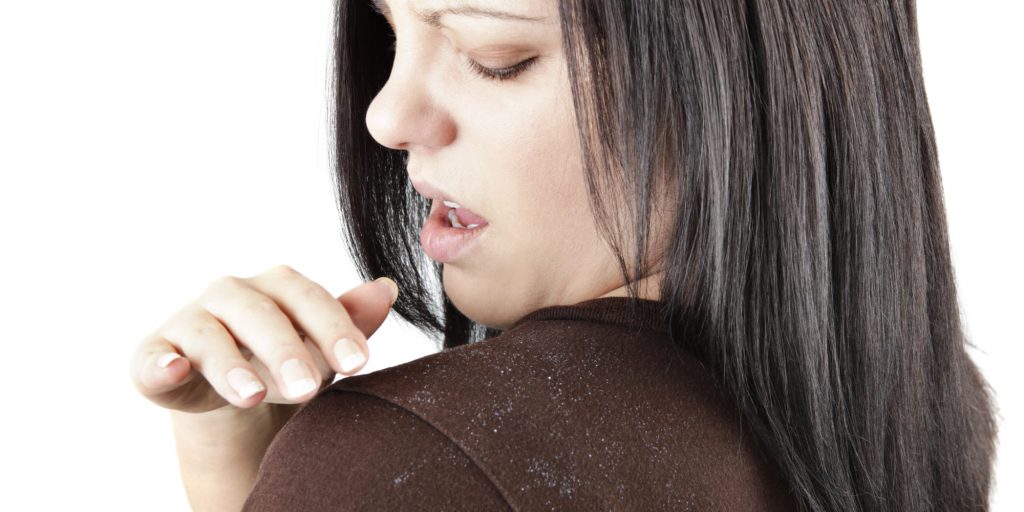Many people struggle with scalp itching and dandruff. The severity can range from a minor nuisance to keeping you up at night. Sometimes it’s related to seasonal changes and stress. Other times there is no identifiable factor. The good news is that you don’t have to ban all black from your wardrobe, as there are lots of tips and tricks for dealing with this common frustration.
The technical name for this condition is “seborrheic dermatitis.” Nobody knows exactly what causes it, but it’s believed to be related to a yeast that is part of the oil secretion on the skin. Don’t worry, we all have it! But for some people, it can overgrow and contribute to the red scaly patches that cause itching and dandruff. Inflammation and oil production also play a role in this skin disorder.
Symptoms of seborrheic dermatitis include areas of redness with or without greasy white or yellow scales or crust. Skin flakes are often noticeable on hair, eyebrows and mustaches. Stinging, burning, or itching may also accompany the visual findings. It should be mentioned that this condition can also affect the central face and chest, ears, axillary areas and just about any high-oil producing area. Unfortunately, it is not curable, but can be successfully treated!
We have many options for treatment of seborrheic dermatitis. For very mild cases, shampoos that contain zinc oxide, sulfur or salicylic acid may be effective. Anti-fungal shampoos can also be beneficial. Over-the-counter options containing salicylic acid that I recommend are: Neutrogena T-SAL shampoo or DHS Sal shampoo. Ketoconazole shampoo (Nizoral) or Head & Shoulders Intensive Treatment shampoo are great options for anti-fungal shampoos that are over the counter.
For flares or severe symptoms, shampoos and solutions aimed at controlling inflammation are very effective. This includes all of our corticosteroid topical products, which are available with a prescription. Use of these require some education, as they cannot be used on a daily basis indefinitely secondary to their potential for side effects. In the short term, they are completely safe.
Lastly, shampoos or creams that fight bacteria have been found to be beneficial. This includes Sulfur shampoos or topical creams (available with a prescription) and a cream called Metronidazole, which is typically only used on the face.
As you can see, we have lots of options for controlling your scalp dandruff and itching. Please don’t hesitate to come see us and let us determine what would work best for you! And don’t be afraid to go ahead and lift that ban on dark colors from your wardrobe.
-Sarah Minarick, PA-C




Leave a Reply